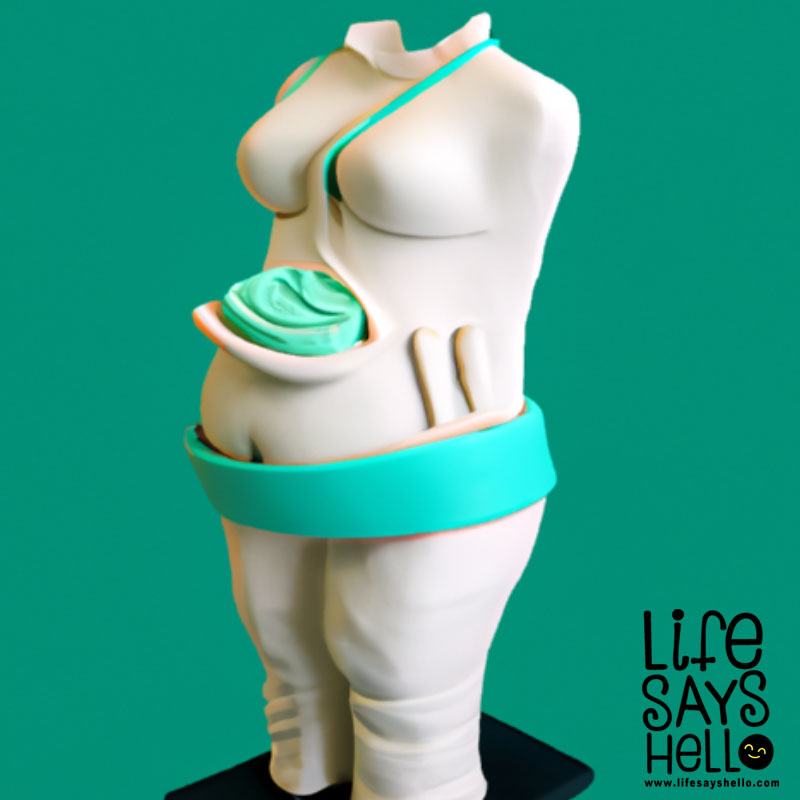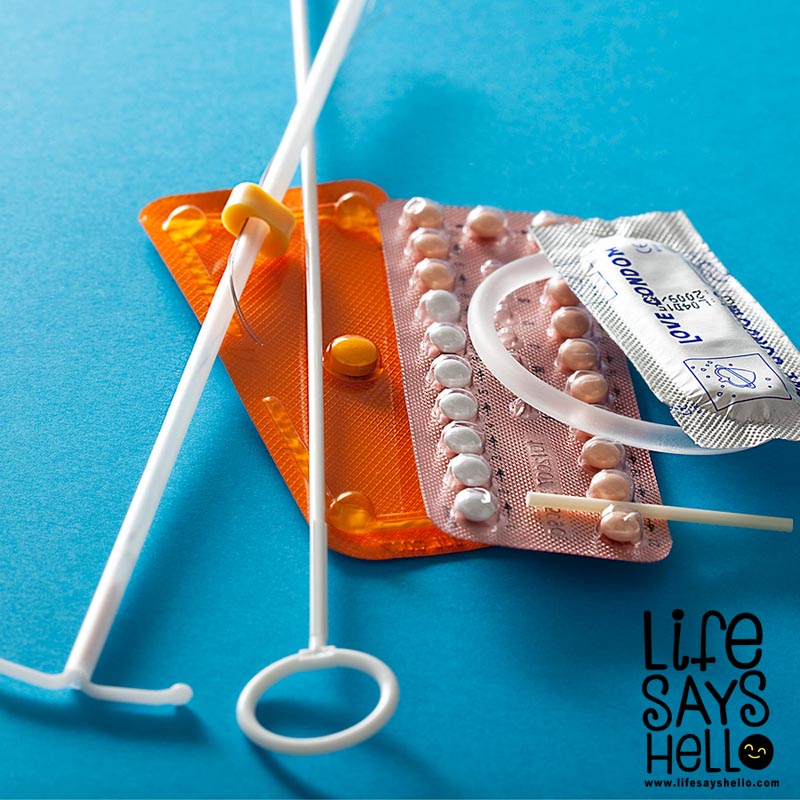Post-Hernia Surgery: Unraveling the Mystery of a Bigger Stomach and How to Deal With It

Going through hernia surgery can be a challenging experience, but it's often the best solution for a painful problem. However, many people find themselves puzzled when they notice their stomach appears bigger after the surgery. In this article, we'll dive into the reasons behind this phenomenon and provide tips on how to manage it, ensuring a smooth recovery process.
Understanding the Reasons Behind a Bigger Stomach After Hernia Surgery
Hernia surgery is a common procedure that aims to repair a bulging or protruding organ, often caused by a weakness in the surrounding muscle or tissue. While it's usually a successful and straightforward procedure, it's not uncommon for patients to notice their stomach appears bigger after the surgery. This can be both confusing and concerning, especially if you're not prepared for it. In this article, we'll explore the possible reasons behind this post-surgery change and provide guidance on how to manage it effectively, ensuring your recovery is as smooth and worry-free as possible.
What is a hernia?
A hernia is a medical condition where an organ or fatty tissue protrudes through a weak spot in the surrounding muscle or connective tissue. There are several types of hernias, but the most common ones include:
- Inguinal hernia: Occurs in the groin area when a part of the intestine or fatty tissue pushes through the inguinal canal.
- Hiatal hernia: Happens when the upper part of the stomach bulges through the diaphragm, the muscle separating the chest and abdominal cavities.
- Umbilical hernia: Seen mostly in infants, this type of hernia occurs when a part of the intestine protrudes through the abdominal wall near the belly button.
- Incisional hernia: Develops after abdominal surgery, when the intestine pushes through the surgical incision site.
Hernias can be caused by various factors, including congenital defects, muscle weakness, obesity, pregnancy, and excessive strain due to heavy lifting or persistent coughing. Symptoms may include a visible bulge, pain, discomfort, and, in some cases, nausea and vomiting.
Hernia surgery and its aftermath
There are two main surgical procedures for hernia repair: open surgery and laparoscopic (minimally invasive) surgery. Both methods involve pushing the protruding organ back into place and using a mesh or sutures to reinforce the weakened area. The choice of procedure depends on the type and severity of the hernia, as well as the patient's overall health and preferences.
After hernia surgery, it's normal to experience some pain, discomfort, and swelling around the surgical site. The recovery time varies depending on the type of surgery and the individual's overall health, but most people can return to their normal activities within a few weeks. However, it's crucial to follow your doctor's advice and take it easy during the recovery period to avoid complications.
Reasons for a bigger stomach after hernia surgery
There are several reasons why your stomach may appear bigger after hernia surgery. Let's explore each of them in detail:
1. Swelling and inflammation
Swelling and inflammation are a normal part of the body's healing process after surgery. The tissues around the surgical site may become swollen and inflamed as the body works to repair the damage. This can cause the stomach to appear larger than usual. Swelling typically peaks within the first few days after surgery and gradually subsides over the following weeks.
To manage post-surgery swelling, you can:
- Apply ice packs to the affected area for 20 minutes at a time, several times a day.
- Keep the surgical site elevated, especially during the first few days.
- Wear an abdominal binder or compression garment, as recommended by your doctor.
- Avoid excessive physical activity and follow your doctor's guidelines for a gradual return to normal activities.
2. Fluid retention
Fluid retention, or edema, is another possible cause of a bigger stomach after hernia surgery. This can occur when the body retains excess fluid in the tissues, causing swelling and bloating. Fluid retention can be caused by various factors, including inflammation, immobility, and certain medications.
To treat fluid retention, your doctor may recommend:
- Diuretics (water pills) to help your body eliminate excess fluid.
- Compression stockings or garments to help improve blood circulation and reduce swelling.
- A low-sodium diet to prevent further fluid retention.
- Regular, gentle exercise, as approved by your doctor, to help promote circulation and reduce swelling.
3. Weight gain due to inactivity
During the recovery period after hernia surgery, it's common for patients to experience a temporary decrease in physical activity. This can lead to weight gain, especially if your calorie intake remains the same or increases. As a result, your stomach may appear larger due to the added weight.
To maintain a healthy weight during recovery, consider the following tips:
- Monitor your calorie intake and adjust it according to your reduced activity level.
- Choose nutrient-dense, low-calorie foods like fruits, vegetables, lean proteins, and whole grains.
- Avoid processed foods and sugary beverages, which can contribute to weight gain.
- Discuss with your doctor when it's safe to resume light exercise, such as walking or swimming.
4. Incomplete repair or recurrence
In some cases, a bigger stomach after hernia surgery may be due to an incomplete repair or a recurrence of the hernia. This can happen if the mesh or sutures used to reinforce the weakened area fail to hold, or if the underlying muscle weakness is not adequately addressed. Signs of a recurrent hernia may include a visible bulge, pain, and discomfort in the affected area.
If you suspect a recurrent hernia, it's essential to consult your doctor as soon as possible. They will assess your condition and determine the appropriate course of action, which may include additional surgery or other treatments.
Tips for a smooth recovery and avoiding complications
Following your doctor's advice and taking proper care of yourself during the recovery period is crucial for avoiding complications and ensuring a successful hernia repair. Here are some tips to help you on your journey:
- Keep the surgical site clean and dry, and follow your doctor's instructions for wound care.
- Be mindful of any signs of infection, such as increased pain, redness, swelling, or discharge from the wound. If you notice any of these symptoms, contact your doctor immediately.
- Gradually return to physical activities, starting with gentle exercises like walking and progressing as your doctor advises.
- Avoid heavy lifting or straining for at least six weeks after surgery, or as recommended by your doctor.
- Attend all follow-up appointments and inform your doctor of any concerns or issues you may have during the recovery process.
Conclusion
A bigger stomach after hernia surgery can be a cause for concern, but understanding the reasons behind it and taking the necessary steps to manage it can help put your mind at ease. By following your doctor's advice and taking proper care of yourself during the recovery period, you can expect a successful hernia repair and a return to your normal activities in due time. Remember, patience and proper care are key to a smooth and worry-free recovery.




Comments